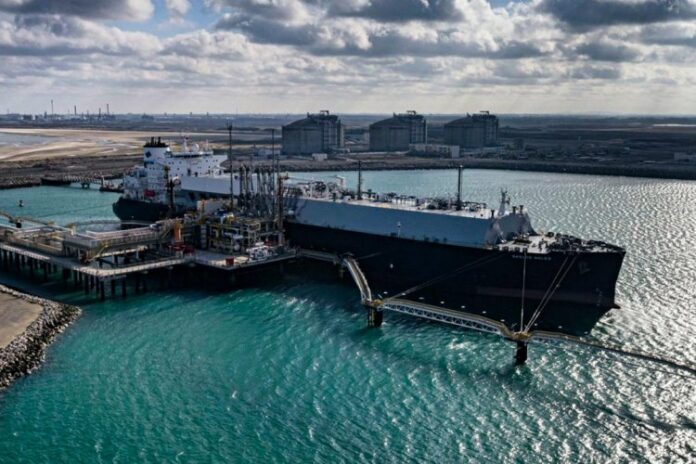ABS, Hyundai Mipo Dockyard Co., Ltd. (HMD), Korea Shipbuilding & Marine Engineering Co., Ltd (KSOE) and the Republic of the Marshall Islands (RMI) Maritime Administrator have signed a JDP to develop liquefied CO2 carrier designs.
Meeting ambitious international climate goals may require global CO2 emissions to fall below zero in the second half of this century, achieving what is known as net negative emissions. Technology for the collection and storage of carbon emissions is a cornerstone of carbon negative strategies, where an organization removes more CO2 from the atmosphere than it emits.
Patrick Janssens, ABS Vice President, Global Gas, said:
“Carbon capture and storage (CCS) has the potential to make a significant contribution to global emissions reduction strategies and safe and efficient transport of liquefied carbon is going to be key to realizing these goals. Development of these next generation CO2 carrier designs will speed the adoption of CCS technology and facilitate net negative emissions strategies. As a global leader in the classification of gas carriers, ABS is delighted to be able to use our experience to support this project.”
Young-Jun Nam, HMD Executive Vice President, said:
“Along with the development of ammonia-fueled ships and a liquefied hydrogen carrier, HMD is going to raise its competitiveness through this joint development project for the liquefied CO2 carrier in the shipbuilding field which is concentrating on the Green Growth Market these days. It will make us a leader in the age of zero-carbon.”
Byeong-Yong Yoo, KSOE Vice President, said:
“It is high time the marine industry develops new transport solutions to contribute to global carbon neutrality. CO2 carriers will play an important role in the overall value chain of CCS and reduce global CO2 emissions. As a world leading shipbuilding and marine engineering company, KSOE is pleased to be able to leverage our expertise in LNG carrier and LPG carriers to pioneer development of a high-performance CO2 handling system.”
Tom Blenk, Deputy Commissioner of Maritime Affairs of the RMI, said:
“The world is transitioning to a low-carbon future and the RMI is pleased that our gas team has been selected to contribute in this effort to develop designs for the safe transportation of liquified CO2. The RMI fleet is the youngest and greenest in the world and we will continue to provide the technical support to industry stakeholders and our owners to advance the reduction of shipping’s environmental footprint.”
The carrier design will utilize adapted versions of HMD’s TYPE-C tank design to transport CO2 which has been reduced in volume by about 600 times under liquefaction.
HMD will develop a Cargo Containment System while KSOE will develop practical solutions for the management of liquid CO2 cargo onboard by providing a CO2 cargo handling system. ABS and RMI will evaluate designs for approval and verification.
For more than 50 years, ABS has classed LPG and LNG carriers – including the first conversion of a cargo vessel to carry LPG, the first purpose-built LNG carrier and the first Very Large Ethane Carrier (VLEC).



